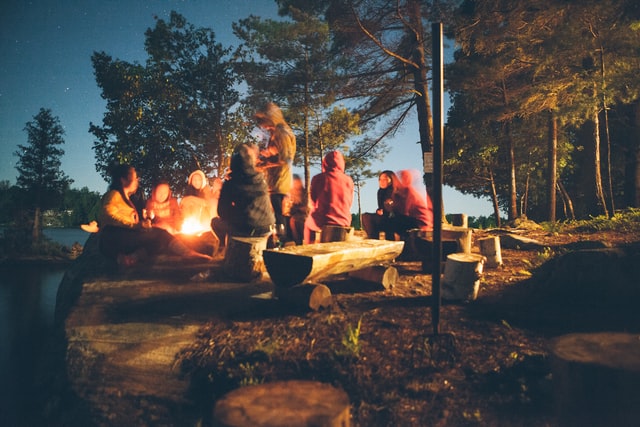Nature and Nurture: A Guide to Sober Camping

Camping season is in full swing, and thousands of Austinites are escaping the concrete confines of Bat City to get closer to … bats … and other types of nature. For those who are in recovery from a drug or alcohol addiction, the term “dry camp” is particularly important and can carry a lot of extra weight.
When you’re in a remote location, sometimes hundreds of miles away from your support system, things get tricky. Due to limited phone access, you may not be able to contact your sponsor and you might be in the company of “non-sober” people. So preparation is paramount to stay strong, protect yourself from relapse and maintain progress.
If you or a friend in recovery is going camping this season, there are several things you can put on your checklist to stay on the right literal and figurative trail.
Sober Campers Make for Happy Campers
Camping trips can be a once-in-a-lifetime experience for both good and bad reasons, all depending on the people you pitch your tent with. A lot of people in recovery still have friends for whom drinking and recreational use is just too hard to give up, even if they know it may trigger you. These are friends that maybe you shouldn’t go camping with.
Choose camping partners who are fully aware of what you’ve been through and what you need to maintain your success. It’s hard enough to be around substance use when you can leave; it’s even harder to be around it when you can’t.
Choose Close(ish) Locations
We all relish the fantasy of escaping, shedding our city shackles to get closer to nature. But there are plenty of ways to enjoy seclusion with the option of an express route back to civilization.
There are dozens of campgrounds in and around Austin that provide the natural wonders of the remote with convenient access to our nurturing support system. Choose a campsite that is close to the people and things that help you in recovery so you’re never too far away from the support when you need it.
Plan Enough Activities
Not to get all fire-and-brimstone, but idle hands truly can be the devil’s campground. Even though you’re going camping to relax, everyone gets bored. Sometimes that boredom can lead to a search for stimulation by any means necessary, even if it’s self-destructive. Pack your itinerary with fun things to do. Stay active and stay busy to fully embrace the experience. Plus it’ll get you good and tired by the end of the day.
Snack Attack!
Most things can be made better and more enjoyable with, you guessed it, snacks. Pack a lot of delicious and healthy treats for you to enjoy with your fellow campers, or all by yourself. There are plenty of amazing recipes to choose to make that will add a whole other dimension to the camping experience.
Believe it or not, snacking has both nutritional and occupational benefits for the recovery process. Eating the right stuff can help combat lingering withdrawal symptoms and give you energy, while the simple act of thinking about and preparing food can be an occupational act of empowerment and a confidence builder.

Talk to Your Therapist About Your Concerns
It’s natural to be nervous or concerned about new experiences — and even familiar ones — while you’re in recovery. Talk to your therapist about your concerns and discover what sort of coping skills you can develop and use independently during high-pressure situations.
If you’re still going to meetings, tell your group about your concerns so they can offer support and insights. There’s no question too “weird” in recovery and you never know how many veteran campers you may have in your recovery meeting.
Make Sure You’re Up to Date with Medical Care
If you’re taking maintenance medication for opioid or alcohol use disorder, make sure your trip won’t interfere with your dose. Make sure you’re also all up to date so you don’t experience withdrawal symptoms out in the wilderness when you’re supposed to be enjoying yourself. Take care of whatever medical needs you have related to your recovery and get your doctor’s approval before you go.
Reading and Writing is Fundamental
Bring a recovery book with you to keep your sobriety top of mind and a journal. Keeping a journal will not only allow you to chronicle the trip, but it will also allow you to articulate your emotions in a safe and supportive space.
You should also feel free to bring whatever makes you happy and will fit in the car. Whether it’s your guitar, your binoculars, your telescope, or anything else, bring it along for the adventure.
In Case You Didn’t Already Know …
You don’t need booze or drugs to have fun in any context, including on your camping trip. Camping is supposed to be a fun and challenging experience, but it should never challenge the strength and fabric of your addiction recovery.
About the Author

Dominic Nicosia is a New Jersey-based journalist and content writer covering addiction care and mental health. He currently serves as Senior Content Writer for Recovery Unplugged Treatment Centers, a national addiction treatment organization that offers a full continuum of care and uses music to help people more readily embrace the treatment process.






